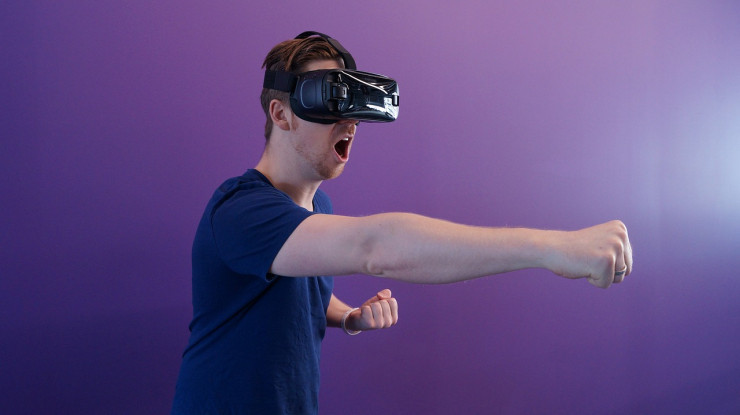Fighting gambling addiction more often with VR glasses

Digital technologies are no longer just used for entertainment, communication or office support. They are also becoming an increasingly important cornerstone of medicine. Among the many possibilities offered by digitalisation, virtual reality (VR) is currently experiencing a boom. Doctors and therapists see great potential, especially in psychotherapy. In fact, VR is increasingly being used to combat gambling addiction.
Unfortunately, no one who regularly gambles in casinos, places sports bets or plays the lottery can escape the risk of gambling addiction. According to the latest figures from the Gambling Atlas 2023, around 4.6 million people in Germany alone have a gambling problem or are showing the first signs of one. Once there is a problem, it is extremely difficult to tackle it, even if it is minor.
The problem is that the addictive substances in question are particularly easy to access online, and in our increasingly digitalised world (almost everyone has at least one smartphone with internet access) it is difficult to effectively prevent access. In addition, it is almost impossible to understand in a traditional therapy setting how addicts behave when they come into contact with physical gambling, for example in a gambling hall. This makes individualised therapy very complex. Often only best practices are applied, which may be of little help to the individual.
Virtual reality is increasingly being used to ensure that treatment is more personalised to the needs of the patient. Approaches such as these make it possible to pinpoint problems more precisely and to address situational effects or relevant behavioural patterns in practice, i.e. in contact with gambling in everyday life. With the help of VR goggles, people are guided into a realistic gambling environment and observed by their therapists.
How exactly does gambling addiction therapy work with the help of VR?
One of the most important aspects of treating gambling addiction through virtual reality is the close contact it allows with the patients' problem patterns in the practice. It is often the case that therapists are far removed from real-life temptations when they carry out treatment in their practice. Most of the time, what happens in the therapy room is not exactly what the patient experiences in his or her everyday life. This greatly reduces the chances of success and ultimately makes therapy extremely lengthy.
There are much better, more efficient ways of doing this if therapists and doctors can work close to the usual patterns and processes of addiction. Of course, it is (usually) not an option to accompany problem gamblers every step of the way. Only in very severe cases can a treatment specialist accompany the patient to the gambling hall or monitor private online use on site.
While extreme reactions are reportedly more common, the therapist can intervene quickly or change the conditions of the simulation. Through this flexible, situational and everyday approach, medicine hopes to identify the exact impulses that trigger addictive behaviour and to eventually reduce certain stimuli for the patient.
There are very good individualisation options and therefore the best treatment options
Research and practice show that the optimal possibilities for individualising VR therapy mean that the chances of success are all the better. Not only can therapists customise such a session quickly and flexibly. The sequences themselves can also be customised very specifically. The more precisely the virtual environment can be customised to typical addiction patterns, the greater the therapeutic effect, say the experts.
In order to create the best conditions here, large therapy centres have long been working together with renowned developers of corresponding systems. One of the market leaders is the Italian company Spherea3D, which has long been involved in the production of high-quality 3D film sequences for therapeutic purposes. The company co-operates very closely with the relevant institutions and medical professionals, which means that many specific situations can be covered. The final sequences are therefore virtually customised and precisely adapted to various therapeutic goals.
Does gambling addiction treatment with VR glasses work?
In fact, many studies have already investigated the possibilities and effects of VR psychotherapy. Its effectiveness has been confirmed in almost all areas. According to the medical community, it has great potential in the field of gambling addiction. Here it is possible to provide quick and direct access to stressful feelings in particularly relevant situations when the pressure of addiction is increasing.
With the help of immersive videos, patients can be introduced to addictive situations in a very real and vivid way. Their dynamics can then be precisely analysed according to the overall tone. It is important that this takes place in a safe environment, i.e. in a therapeutic practice. Although the patients come close to exceptional situations, they are "caught" before very critical situations arise.
Conclusion
Image source: https://pixabay.com/de/photos/vr-virtuelle-realit%C3%A4t-mann-3559837/

0 Comments to: Fighting gambling addiction more often with VR glasses
write a commentOur community thrives on your feedback - so let us know what you think!
Would you like to write comments on GambleJoe yourself? Then just create a GambleJoe User Account.